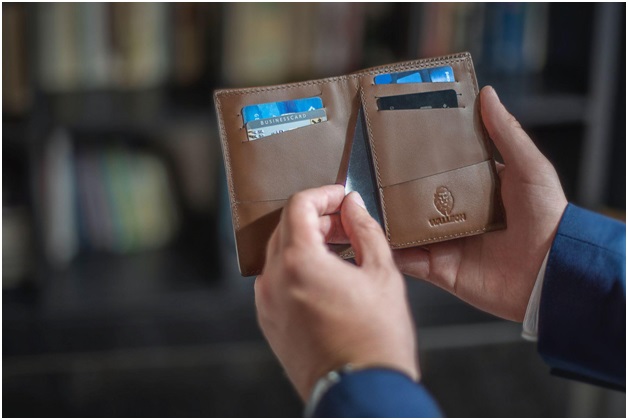Credit cards can be an extremely effective financial tool when used wisely and responsibly. To reap their full benefit, make sure that every month your balance is paid in full and on time.
Before selecting a card, take some time to assess your goals and related factors like credit score and interest rates.
What Is a Credit Card?
Credit cards are one of the world’s most widely-accepted forms of borrowing money to cover purchases or emergencies.
When used responsibly, they provide great financial convenience by enabling consumers to buy goods and services without immediate payment in cash; however, overspending can lead to incurring unnecessary interest charges that increase over time.
Debit cards, on the other hand, are connected directly to an individual’s checking or savings account and only access funds when using it for transactions.
A credit card differs in that it acts like a loan from banks or other issuers with predetermined borrowing limits and typically provides grace periods where no interest charges apply on new transactions; consumers may also transfer balances and obtain cash advances using this type of card as separate transactions based on its terms.
Credit cards can help people establish and build up their credit scores and demonstrate to lenders that they can manage money efficiently – an essential skill when looking for major purchases like a car or home in the future. You can learn more about financing a home by clicking the link.
Each month, credit card companies report your payment history and balance to one of three consumer credit bureaus which influence your individual score; some cards even allow rewards on purchases and cash back bonuses that can add up quickly for savings!

How to apply for a credit card
Owning a credit card in Norway is a must if you plan to take advantage of its financial services. A card can be used to buy goods and services, make utilities payments and travel bookings.
Furthermore, credit cards allow consumers to manage spending habits more effectively without carrying around large sums of cash. But getting one requires careful thought and consideration – understanding eligibility requirements, choosing an appropriate card and applying correctly all must happen for the best experience possible.
As we move toward cashless societies, credit cards have become an increasingly convenient mode of payment worldwide. Norway boasts one of the lowest cash transaction percentages globally according to European Payment Council statistics; consequently Norwegians have taken to making credit cards part of daily life and paying with them more frequently than ever before.
Norway is home to several institutions that issue credit cards, including banks, credit unions, and card companies. There are various types of cards on offer ranging from basic to rewards cards that could suit your financial situation and spending habits; to find your ideal card you may also compare offers from different providers or consult trusted sources.
Applying for a credit card in Norway varies slightly between banks, though most will look for certain requirements such as proof of identity, income and credit history as common necessities. Such documents might include payslips, employment letters or tax returns to demonstrate income; having good domestic and international credit histories increases your odds of approval.
If you are approved for a credit card in Norway, the terms and conditions will arrive via mail. Careful reading of these documents will provide a thorough understanding of its functions and restrictions before being ready to start using your new card for purchases and financial management in Norway. This can help you prepare to use your card in a way that will improve your financial health.

What to expect during the application process
Before applying for a credit card, it’s essential that you gain an accurate understanding of your current and past credit situations and where they stand. To do this, request your free report and score from each major consumer credit bureau: Equifax, Experian and TransUnion.
Double check that all information provided within is up-to-date and accurate regarding past loans or credit cards taken out as well as debt levels relative to income.
Knowledge of different credit cards, their benefits, interest rates and fees is important when finding one that best suits your financial situation and spending habits. Do your research by exploring your available card options and comparing terms and conditions; when you’ve made your selection fill out a credit application with its issuer.
As part of the application process, you will typically be required to provide personal data such as your name, address, date of birth and social security number. Certain cards may also require employment information or source of income details.
It should be noted that when applying for credit cards companies will often run hard inquiries against your credit report that can have detrimental impacts on your scores.
If you are uncertain if you qualify for a credit card, seeking advice from an expert financial adviser is recommended. These advisors can be found either online or at local Citizens Advice Bureaus.
Once a credit card company has processed your application, they will inform you whether you were approved or denied for the card. If your application was denied, speak with them directly and request reconsideration; in some cases debt can help reduce credit utilization ratio and improve chances of approval.

What to look for in a credit card
With so many credit cards on the market, it can be challenging to choose one that meets your individual needs.
To help narrow down your choices, begin by thinking about what kind of function your card should fulfill for you – for instance if you’re an avid traveler collecting airline miles you may require different features than students building credit or those seeking cash back rewards.
Once you understand your credit card needs, the next step should be researching rates and fees. Look for a rate comparison box or chart in both your agreement and on the card’s website to get an overview of key rates and fees such as annual fees, minimum payment requirements and how interest is charged on regular purchases, balance transfers and cash advances.
Also, keep an eye out for introductory offers (e.g. zero percent APR for 6 months purchases) as this will give an idea of when promotions may end.
Other important considerations when selecting the ideal card include its credit limit and any fees or penalties such as late payments or over-the-limit charges. Furthermore, be sure to review its rewards offerings, co-branding benefits, travel perks and insurance protection features like purchase or extended warranty coverage if applicable.
An effective credit card should help you reach your financial goals efficiently and affordably, whether that means building or maintaining your credit score, paying off debt quickly or earning rewards with every purchase. In order to make the appropriate choice, it’s essential that you understand how credit cards operate and which features are relevant for you.
As you consider all your available options, it’s advisable to conduct a process of “weeding out.” Keep only a kredittkort which provides benefits you need while getting rid of those which don’t. This can make it simpler to compare the cards that remain.

How to use a credit card in Norway
Credit cards can be powerful financial tools when used responsibly, yet it’s important to remember they’re still loans with monthly repayment requirements. Therefore, understanding how credit cards operate in Norway before applying is vital if you want to responsibly manage expenses while taking advantage of all their advantages.
Norwegian retailers tend to welcome credit and debit card payments and will happily accept your Visa or Mastercard. Many also accept contactless payments made by simply inserting and tapping the card on a payment terminal sensor – this is particularly convenient at restaurants, attractions and hotels.
You may also wish to utilize digital payment solutions which have become increasingly popular across Norway.
Be mindful that Norwegian banks tend to set high minimum withdrawal limits on credit cards. As a result, you may find yourself blocked from accessing funds when trying to withdraw cash from an ATM – it is usually more practical to convert currency with a bank or exchange bureau prior to withdrawing it from an ATM.
Assuming you meet certain minimum criteria, obtaining a credit card in Norway should be straightforward and painless. This usually includes proof of full time employment as well as being able to consistently pay household and personal bills on time.



